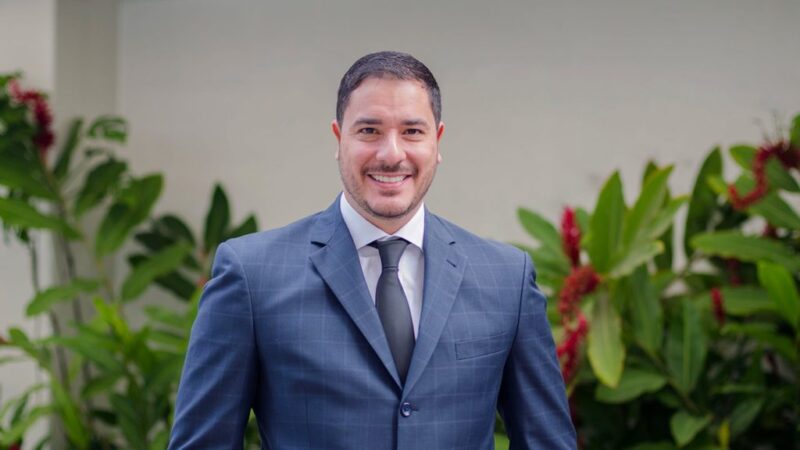Rafa Núñez expressed his expert opinion on the cyberattack on the NOIRLab telescopes
The director of MásQueSeguridad explained that cyberattacks on scientific infrastructures are becoming more frequent and threaten research as well as development, which is why cybersecurity should be prioritized in this type of activities, facilities, and projects
Cyberattacks on scientific infrastructures are becoming more frequent and pose a major threat to research and development, explained information security consultant Rafael Núñez Aponte, director and spokesperson for MásQuéSeguridad.
First, it is crucial to understand the importance of these attacked telescopes. NOIRLab play a vital role in astronomical research, allowing scientists to explore the depths of the universe and better understand celestial phenomena. However, the recent cyberattack on these telescopes highlights the vulnerability of even the most advanced scientific facilities.
According to Rafael Núñez, a cybersecurity specialist known as Rafa Hacker, the attack on the Noirlab 1–2–3 telescopes raises several concerns about the state of cybersecurity in scientific institutions. This serves as a reminder that no organization is immune to cyber threats, regardless of its size or reputation. In this case, the attackers exploited vulnerabilities in the telescopes’ systems, bypassing their defenses and potentially gaining unauthorized access to sensitive data.
What happened?
As reported by news agencies and other international media, a major cyberattack was targeted and took place, affecting the NOIRLab telescopes located in Chile and Hawaii. According to futuro360.com, the attack was carried out on August 1, and to date, the National Optical-Infrared Astronomy Research Laboratory (NOIRLab) still maintains the operations of approximately 10 telescopes (the majority in Chile) suspended. NOIRLab, formerly known as the US National Optical Observatory (NOAO), is a leading astronomical research organization and operates a number of telescopes in strategic locations around the world.
The cyberattack produced a significant interruption in the operations of the telescopes, which has caused concern both in the astronomical community and in the scientific community in general, and even speculation of a wide variety of kinds.
This closure has interrupted international projects, doctoral theses and other works, since they cannot remotely access the controls of another network called Medium-Scale Observatories in Chile. Even the Gemini.edu website is also offline.
The NOIRLab has stated that it has quickly put security measures in place to contain and counter the attack, as well as to investigate the source of the attack. It has also assured that it is currently in the process of fully restoring the operations of the affected telescopes.
It is not the first time that a telescope of this magnitude has received a hack, since in October 2022, hackers also attacked the Atacama Large Millimeter Array Observatory (ALMA) through a VPN. This led to months of shutdowns that cost the facility about $250,000 a day.
Even NASA has had these problems, since an unauthorized Raspberry Pi was connected to the computers of the Jet Propulsion Laboratory, where illegal access was given to the Deep Space Network, causing the Johnson Space Center to take its systems completely offline gateway mission.
Authorities and organizations, such as the United States National Security Agency (NSA), are collaborating with NOIRLab in the investigation and identification of those responsible for the attack. Due to the sensitive nature of the data and the announced research already taking place at these telescopes, it is expected that the attack will be thoroughly investigated.
Trust in scientific institutions
Rafael Núñez Aponte, director of MásQueSeguridad, explains that cyberattacks on scientific infrastructures are becoming more frequent and threaten research and development, for this reason cybersecurity should also be prioritized in this type of facility
For Rafa Núñez, the impact of a cyberattack of this type goes beyond the immediate breach. It can lead to a loss of public confidence in scientific institutions and in their ability to protect valuable information. Furthermore, a successful attack on telescopes like NOIRLab could have far-reaching consequences for scientific research, disrupting ongoing projects and delaying important breakthroughs and discoveries.
Collaboration with cybersecurity experts is key
To prevent future cyberattacks, it is essential that scientific institutions prioritize cybersecurity. According to Núñez, this includes regularly updating and patching systems, implementing strong authentication mechanisms, and conducting extensive security audits. Collaboration between scientific organizations and cybersecurity experts is also crucial to develop strategies and solutions that can effectively mitigate emerging threats.
For Rafa Núñez, the cyberattack on the NOIRLab telescopes in Chile and Hawaii is a harsh reminder of the importance of cybersecurity in the scientific community. It highlights the need for increased vigilance, investment and collaboration to protect scientific infrastructures from evolving cyber threats. Only by taking proactive measures and prioritizing cybersecurity will we be able to safeguard valuable information, research, and maintain the integrity of scientific efforts.

Rafael Núñez Aponte
He is a noted information security consultant who has helped banks and other entities protect their information. He presented a presentation on ethical hacking, threats and cyberattacks, qualified as important and interesting, at the XX National Security Congress of the Dominican Republic. Rafa Núñez is also a writer and is recognized as a successful businessman, an expert in online reputation and branding.
Taken and with information from MásQueSeguridad
(Main referential image source: Daniele Levis Pelusi, Unsplash)
Visit our news channel on Google News and follow us to get accurate, interesting information and stay up to date with everything. You can also see our daily content on Twitter and Instagram



